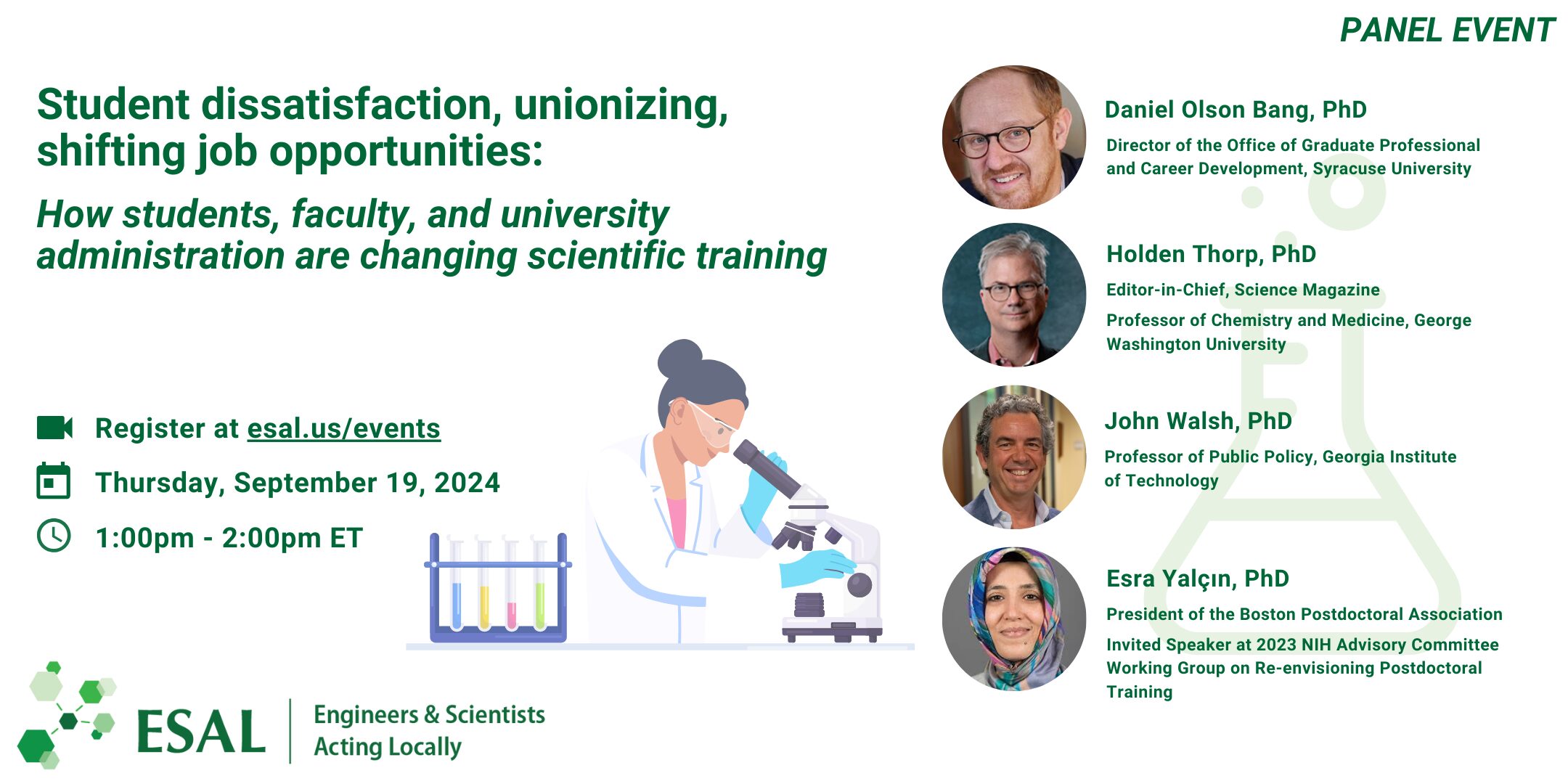
Career trajectories for people with advanced degrees in science have changed in the past decades, but our general approach to training the scientific workforce has not. Created in the aftermath of World War II, the current system of training scientists in the US relies primarily on research and training grants awarded to principal investigators. Faculty members use these grants to fund student and post-doctoral researchers to conduct hands-on research and gain experience-based training.
Today, students are expressing dissatisfaction with this approach and taking action in their campus communities to advocate for change. Their concerns include adequate compensation, quality of life, harassment, diversity, job security, and career prospects. To address these concerns, groups of students and faculty are raising awareness, unionizing, and striking.
How are campus groups working with and pressuring institutions of higher education to create supportive conditions for the future scientific workforce and their needs while balancing other administrative and financial demands? What are the broader implications of these efforts for scientific training and the future scientific enterprise?
View the event recording on ESAL's YouTube channel: